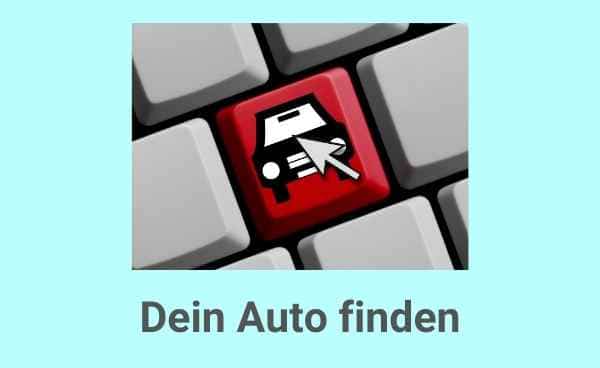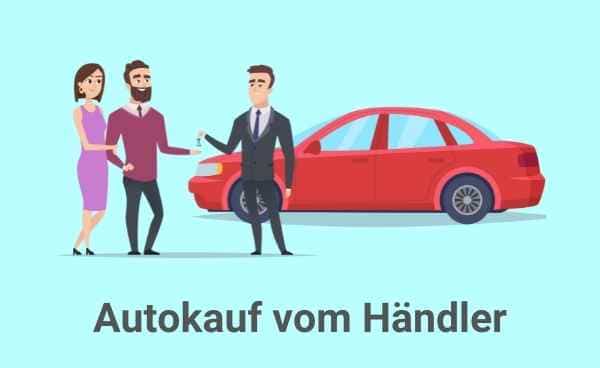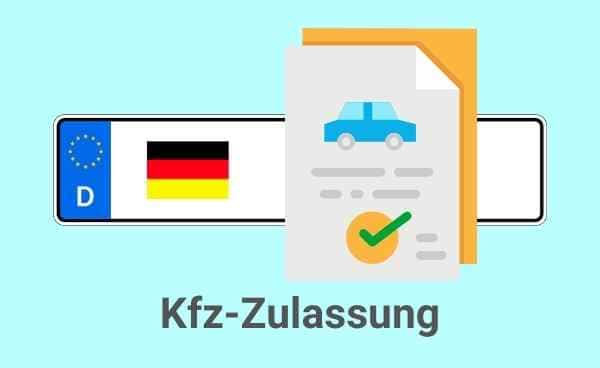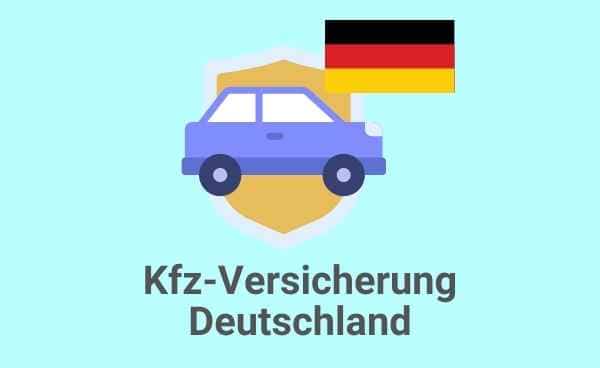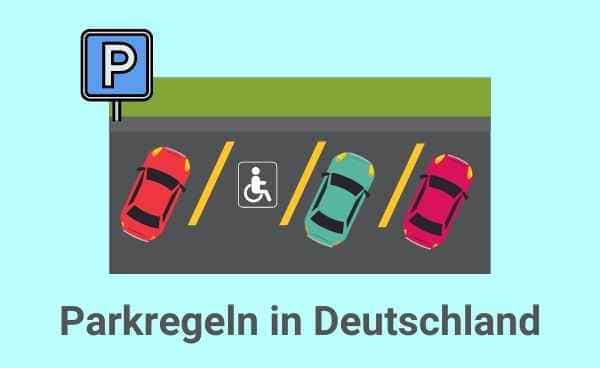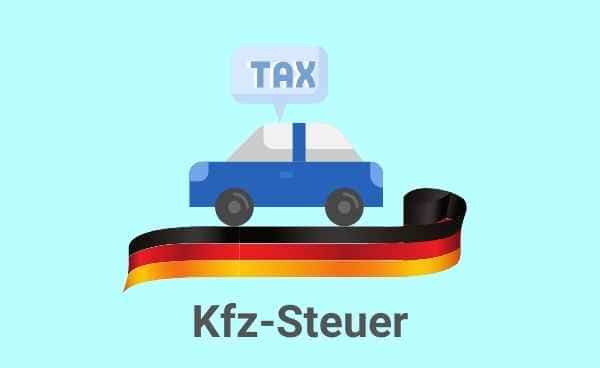How to buy a car in Germany is sometimes an essential question for foreigners.
During the past 13 years, I bought and sold seven cars in total in Germany.
So I decided to put together this comprehensive article to tell you how I managed to buy a car.
I hope that I explain to you that the process of buying – and selling – a vehicle in Germany as a foreigner is not as scary as it might look.
Topics in this article
Valid driving license in Germany >>
Finding the right car in Germany >>
Inspecting the car and the test drive >>
Vehicle registration in Germany >>
How expensive is owning a vehicle in Germany? >>
Key takeaways
1. Before you buy a car, make sure you have a valid driving licence in Germany.
2. You can find the right car on the internet, in newspapers or from car dealers
3. I always recommend that you check the car carefully and take it for a test drive before buying it in Germany.
4. You need various documents to register a automobile in Germany. You can find the list in this article.
5. Take out cheap car insurance in Germany with a car insurance calculator.
6. Before you buy a car, find out about all the costs such as insurance, fuel and inspections.
7. Due to the lack of new cars for the moment, the price of used cars in Germany increased significantly.
8. Read all other articles on this topic at germansuperfast.com
You want to buy a car in Germany? Make sure you have a valid driving license
The essential thing you will need when owning a car is having a valid driver’s license in Germany as it is in every other country as well.
First, I would like to explain what kind of driving license you should have in Germany.
If you are in Germany only for a visit or temporarily, you won’t have to worry about how long the driving licence is valid.
In some cases, depending on where you are coming from, you might need to carry an officially translated driver’s license with you. So that authorities and the police can understand where you are coming from.
EU driving license or any other state to the Agreement on the European Economic Area (EEA)
As an EU citizen with a valid driving license, your life is almost as easy as it can get.
Your license is basically accepted for five years after the date of issue in your home country.
This is valid for all of the following categories: C1, C1E, C, CE, D, DE, D1, and D1E. I explain to you the categories in my article:
Driving License In Germany: How To Obtain or Covert
You can even extend the availability of your driving license by another five years if you meet appropriate health and eyesight requirements.
And this without having to take a theoretical or practical test in Germany.
Special regulations for the UK driving licenses
If they register their residence in Germany, they must convert their British driving licence into an EU/EEA driving licence after six months at the latest.
Residence in Germany is considered established under driving license law. In the case you live here for at least 185 days a year.
UK driving license holders who wish to convert their license to a German license can currently do so without taking a theoretical or practical test.
Germany intends to conclude a reciprocity agreement to this effect with the United Kingdom.
American driving license in Germany
According to the US embassy in Germany, there is a special agreement between Germany and the US. It allows US citizens, who stay for six months in Germany, to use their existing driving license.
If you want to stay less than a year, meaning 364 days, you may legally drive in Germany.
In this case, you will have to go to “Führerscheinstelle” in Germany. There you ask for permission to drive for this extended period of time before the first six months expire.
Driving licenses from other countries
If your country is within the list of those 19 countries outside the EU/EEA that have a special agreement, your rules will be similar to those from the US.
If you are a citizen of any other country you often have to take a theoretical and/or practical exam if you plan to stay longer than six months in Germany.
Finding the right automobile in Germany
Finding a car in any country is not one of the easiest tasks. For that reason, I collected for you all important information based on my own experience of buying and selling 7 cars in Germany. As in most other countries, you have several options where to get a car from. So let’s take a closer look at the most popular options in Germany.
Where to find a car in Germany?
Finding a car online is easy. My recommendation is to use well-known websites like eBay, autoscout24, or mobile.de. You will find both, used and new cars on all those platforms.
Other places to look at are for example local newspapers or even on the streets.
Yes, Germans sometimes leave their used cars parked next to the streets.
And put a sign in its windows and say that they’d like to sell their car.
Read more about it in my in-depth article about finding a car in Germany online:
How To Find A Car In Germany On Internet (ENGLISH Guide)
Buying a vehicle in Germany at a dealership: Advantages, disadvantages
There are of course advantages when you buy a car at a dealership:
- you’ll get a proper contract
- you know where the car is coming from
- there is a company behind that sales
This provides you with some extra security that you might not get with a private seller.
But there is also one significant difference:
Buying a car in Germany at a dealership is most of the time more expensive than getting a car from a private person.
The past few months in particular have seen a huge increase in used car prices in Germany. I spoke to a few car dealers in my region and they described the following situation:
Because car manufacturers are having availability problems and are delivering fewer new cars, there is a high demand for used cars. That’s why cars that used to sell for 4-5,000 euros a few years ago are now selling for 8-9,000 euros.
They also told me to be careful: If you buy at a high price and the availability of new cars improves in the coming months, the value of your newly bought used car could drop by 30% in a very short time.
Buying a car from private persons: Advantages, disadvantages
There are two advantages here:
- The pricing is usually more reasonable
- and you can get a good car for a lower price very often, especially in these crazy times
But the disadvantages are quite obvious:
If a private person is up for fraud, you have almost no guarantee that you either get your money back or even find that person again.
You can read more about what things to watch out for when buying from a private person in the detailed article linked here.
Inspecting the car and the test drive
It’s always important to inspect a car and take it on a test ride in Germany. Not only if you buy it from a private person.
While you can skip the car inspection when you buy your car in an official car dealership, I highly recommend taking the car on a test drive when you are privately buying a car.
If you are not sure if the car is okay, you can book an used-car check at TÜV or DEKRA. It doesn’t cost much and the car gets checked by a professional. At least, this is what I do to make sure that the used car I buy is in good shape.
Car papers in Germany
The first thing to take a look at are the car papers. Those consist of:
Fahrzeugschein 1 – formerly known as “Fahrzeugschein”
And Fahrzeugschein 2 (formerly known as “Fahrzeugbrief”)
It’s also important to examine the last TÜV documents as well as any documentation of the past inspections of a car.
If you are buying a car with several modifications, you need to take a look at the ABE. This is the “Allgemeine Betriebserlaubnis für Umbauteile”.
And also take a look at the license plate.
Environmental zones in Germany
So-called “Umweltzonen” or low-emission zones in Germany are set by the cities on their own. Those were introduced in 2008 by the Umweltbundesamt in Germany. As a result of this regulation, only vehicles that meet the respective minimum requirements can enter the respective zones.
Seasonal plates in Germany
Seasonal plates are most of the time used RVs or convertibles.
The seasonal plates clearly define the time of year when you are allowed to drive a specific vehicle. Nevertheless, the advantage of seasonal plates can be that you save money on taxes and insurance alike. As you are not using the car all year long.
How to verify if a car had an accident?
Whether a car has been in an accident can be difficult to determine. If you test drive your car, it may be a good idea to have it checked at an independent garage.
A good car mechanic that you can trust can identify this quite easily.
But, even if a seller does not tell you about a previous accident, they are basically committing fraud.
In case a car had more than only one previous owner finding out about any accidents might be impossible.
Buying a car in Germany
Since buying a vehicle in Germany is not as hard as you might assume, I will only mention the most essential things here.
If you need more information, please consider taking a look at my in-depth article about “How to buy a car in Germany for export”.
Car sale agreement in Germany and where to find a car sales agreement template
If you are buying a car from a private person, it’s highly recommended to use a standard car sales agreement template.
The “Autokaufvertrag” or “Musterkaufvertrag” can be downloaded
Cash or money transfer?
Whether you’d like to pay in cash or via money transfer highly depends on the situation.
Private sellers usually ask for payment in cash. Whereas car dealers prefer to have money transfer after signing the contract with them.
Buying a car in Germany for export?
Read this article:
Buying A Car in Germany For Export (Beginners’ Guide)
Alternatives to owning an automobile in Germany
There are several other options to buying your own car.
You can
- either lease a car
- consider long time renting models, “abos” (subscription model)
- or don’t buy a car at all
As this country usually has quite a good public transport system (if you don’t live a more rural areas, like me).
How to finance your car in Germany?
Financing your car is easier than you might think.
If you are buying a car at an official dealership, they usually work with specific banks that offer “KFZ Kredite” or car credits.
I’ve already written an in-depth article about credit in Germany.
Don’t worry – it’s not as difficult as it might sound.
Vehicle registration in Germany
Registering the vehicle in your name is one of the most important steps you have to take, after you buy your car.
If you buy it at a dealership, they usually take care of everything for you.
Which documents do you need for car registration in Germany
If you are buying a privately owned car, your first step after paying for the car should be to take care of the “Ummeldung”.
What is Ummeldung?
It’s basically the official unregistration of the car. And the new registration of the care for the buyer.
Documents that you will need for the Ummeldung are:
- your personal ID (“Personalausweis” or “Reisepass” alongside with a “Meldebescheinigung”)
- an electronic confirmation of your car insurance called “eVB-Nummer”
- both Zulassungsbescheinigung 1 and 2 (formerly “Fahrzeugschein” and “Fahrzeugbrief”)
- the official HU documentation of the most recent check
- an “Einzugsermächtigung” (direct debit authorization) for car tax,
- old number plates in case you want new ones
For imported cars, I have prepared some additional information in my in-depth article about:
This includes a section for registering an imported vehicle in Germany as well.
Start by making a car insurance in Germany
Before going to the KFZ-Zulassungsstelle, you should take care of your car insurance.
You can find the best car insurance here: Cheapest car insurance.
They will give you an eVB-number.
eVB number
The eVB-number is an officially accepted number that states that you already signed up for car insurance in Germany.
That number needs to be shown to KFZ-Zulassungsstelle.
CLICK HERE to go to Car Insurance Germany Calculator*
KFZ-Anmeldung
The registration or “Anmeldung” of your car is an easy process to follow. Of course, in the case you have all documents ready mentioned above.
Just make sure to check in with your local KFZ-Zulassungsstelle first. Due to the pandemic, many of those are only offering the registration with an appointment.
How expensive is owning a vehicle in Germany?
Owning a car usually involves many follow-up costs after you bought it. Besides fuel, there are a few additional things to keep in mind that I’d like to let you know about.
Car insurance in Germany
Having car insurance in Germany is a must.
Without car insurance, you are legally not allowed to drive your car in any way.
You can read more about car insurance in the article I already published:
How to take out the cheapest car insurance in Germany
Fuel price in Germany
Fuel prices are quite high in Germany because of several reasons. And tax is only one of them.
Fuel is being paid in liters. This makes it even more expensive when you are used to paying a price per gallon.
The price varies from day to day, even several time per day, most of the time based on the price per barrel of crude oil.
Taxes take away about 65 cents per liter for gasoline and 47 cents per liter of diesel fuel.
In addition to that, you have to pay a VAT of 19% on the total price.
Factors such as crude oil price, dollar exchange rate, and the supply and demand situation on the world market are also taken into account.
Here you can check daily the fuel prices in Germany.
Car inspection in Germany
The official inspection called “TÜV Prüfung” has to take place every two years.
It’s separated into:
- HU “Hauptuntersuchung” or general inspection
- and secondary in the AU “Abgasuntersuchung” which is basically an exhaust emission test
Your car has to pass both tests to be officially allowed to be driven.
If you are late for both tests, it can happy that you have to pay fines for a late examination.
If the police catch you with an expired TÜV certificate, you can be forced to take the test in a very short timeframe. And maybe even pay some fines alongside.
In case you bought a brand new car, there is one exception to that rule:
You have to take your initial test after three years. Every follow-up test will take place every two years.
After passing the test with your car, you will get a new “Plakette” plaque on your license plate “Nummernschild”.
Parking in Germany
Parking can be expensive, but it doesn’t have to be.
That totally depends on where you live and work or where you go in your car.
Curbside parking in any downtown area can be expensive.
I’ve seen prices up to 6 Euros per hour.
Parking lots or parking garages can sometimes be even more expensive. If you are parking in a rural area, sometimes you may have to pay nothing at all in comparison to the prices mentioned above.
In case you are going to work by car it might help to talk to your employer about whether they have free parking slots available for their employees somewhere.
When you live in a downtown area, it might happen that your apartment is inside of a restricted parking zone called “Parklizenzgebiet” only for neighbors.
It makes sense to talk to your KVR and ask for such a license. Prices may vary between 30 – 60 Euros per year.
Having such a license prevents you from getting any parking tickets as long as you park in your current zone.
Repairs & car parts in Germany
Repairs and car parts are most of the time not very cheap in Germany.
Especially repairs can be tricky.
If you are considering either going to an auto repair shop from your car manufacturer, this can be much more expensive than going to a so-called independent repair shop.
Unlike the “official workshop”, which guarantees that you will receive original spare parts, independent workshops are sometimes more flexible. They buy cheaper or lesser known spare parts, which makes the repair cheaper overall.
Tires in Germany
There are various different shops for tires available and repair shops usually provide a tire service as well.
You can either buy those at a car dealer, repair shop or even online.
Some websites that usually offer good prices are either reifendirekt.de or reifen.com.
There you can search for your car model and you will get suitable tires.
Car tax in Germany
Car tax can be complicated in Germany. It depends on various factors like the pollutant class “Schadstoffklasse”, engine capacity “Hubraum”, and CO2 emissions “CO2 Ausstoß”.
Based on those factors and your engine type diesel or regular fuel “Benzin”, the car tax is calculated.
Please read more about the car tax in my separate in-depth article about:
Car tax in Germany and how to use a car tax calculator in Germany
Traffic and speeding fines Germany
If you are violating any traffic or speeding rules in Germany, it can get quite expensive. However, this depends on the violation type.
In addition to paying money “Bußgeld” for any violation, you may get an additional “Führerschein Punkte”. Or lose your driver’s license completely.
This “Punktesystem” are also called “Flensburger Punkte” sometimes.
If your violations in a specific timeframe add up to 18 points in total, you will lose your driving license. As a consequence you will have to take a new test.
You will find more about traffic files and speeding fines in Germany in my in-depth article:
Speeding Fines in Germany and Traffic Fines in Germany
Conclusion
In this article I offered you comprehensive information about buying a car in Germany and also on what to take into account.
Especially today you have to be careful not to buy a super-expensive used car, that has a much lower value tomorrow.
Please make sure to take a look at the in-depth articles I mentioned above on several occasions to make sure that you understand what it takes to own a car, register a car, and how expensive it can be to have a car in Germany.
USEFUL INFORMATION ABOUT GERMANY
___
INSURANCE IN GERMANY
> 15 types of insurance in Germany any expat should have
___
FINANCES IN GERMANY
> How To Open a Bank Account in Germany
___
WAGES AND TAXES IN GERMANY
> Tax return Germany – Everything you need to know
> Average Salary in Germany Latest Data
___
WORKING IN GERMANY
> CV in German with Europass: How to fill in step by step
___
LEARNING GERMAN LANGUAGE
> How to learn German fast: Top 10 strategies
* The links that are marked in this way are affiliate links and indicate that we receive a small commission if you decide to buy the products or services offered by our partner sites. But for you, it won’t cost you anything extra.



